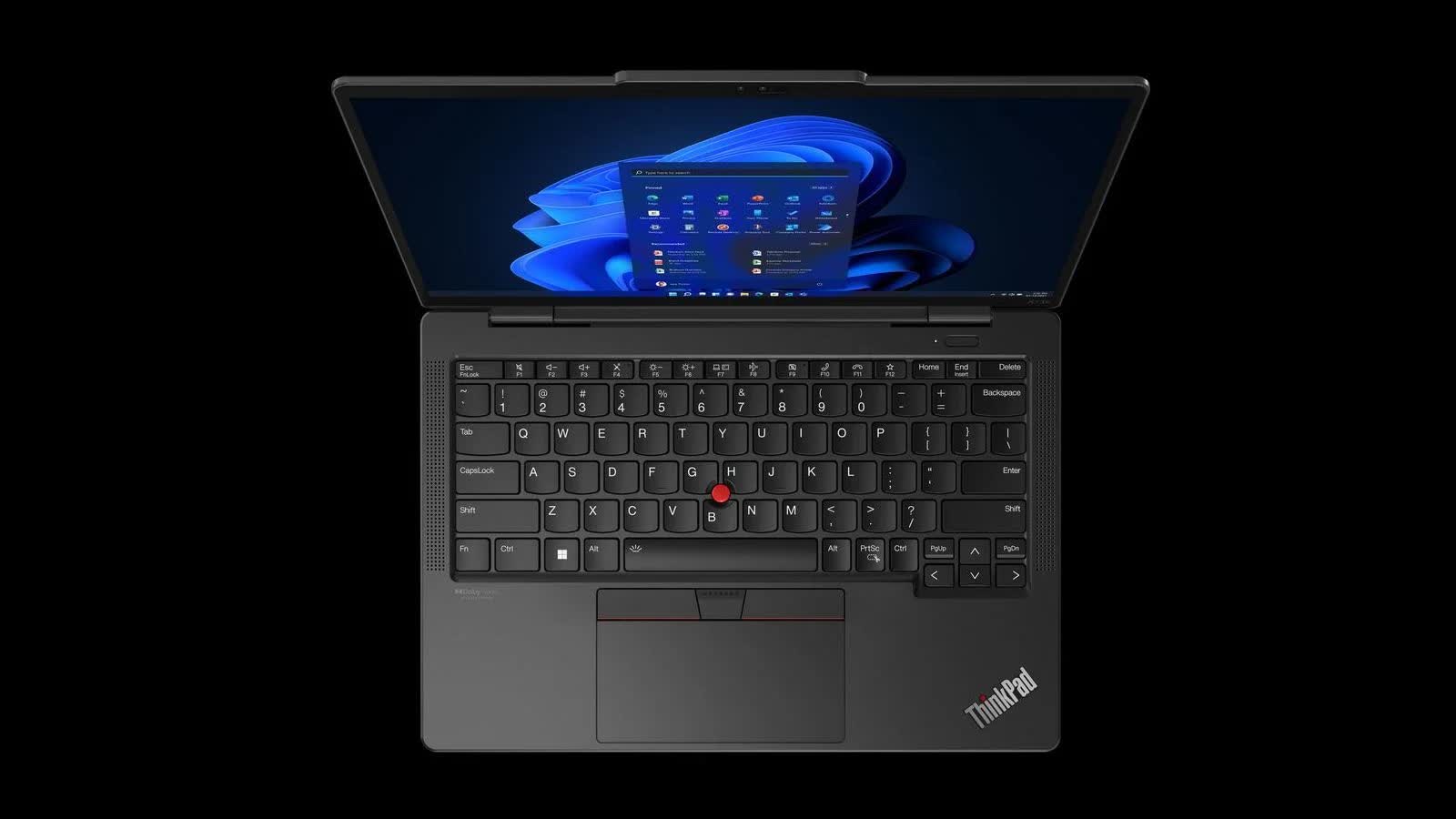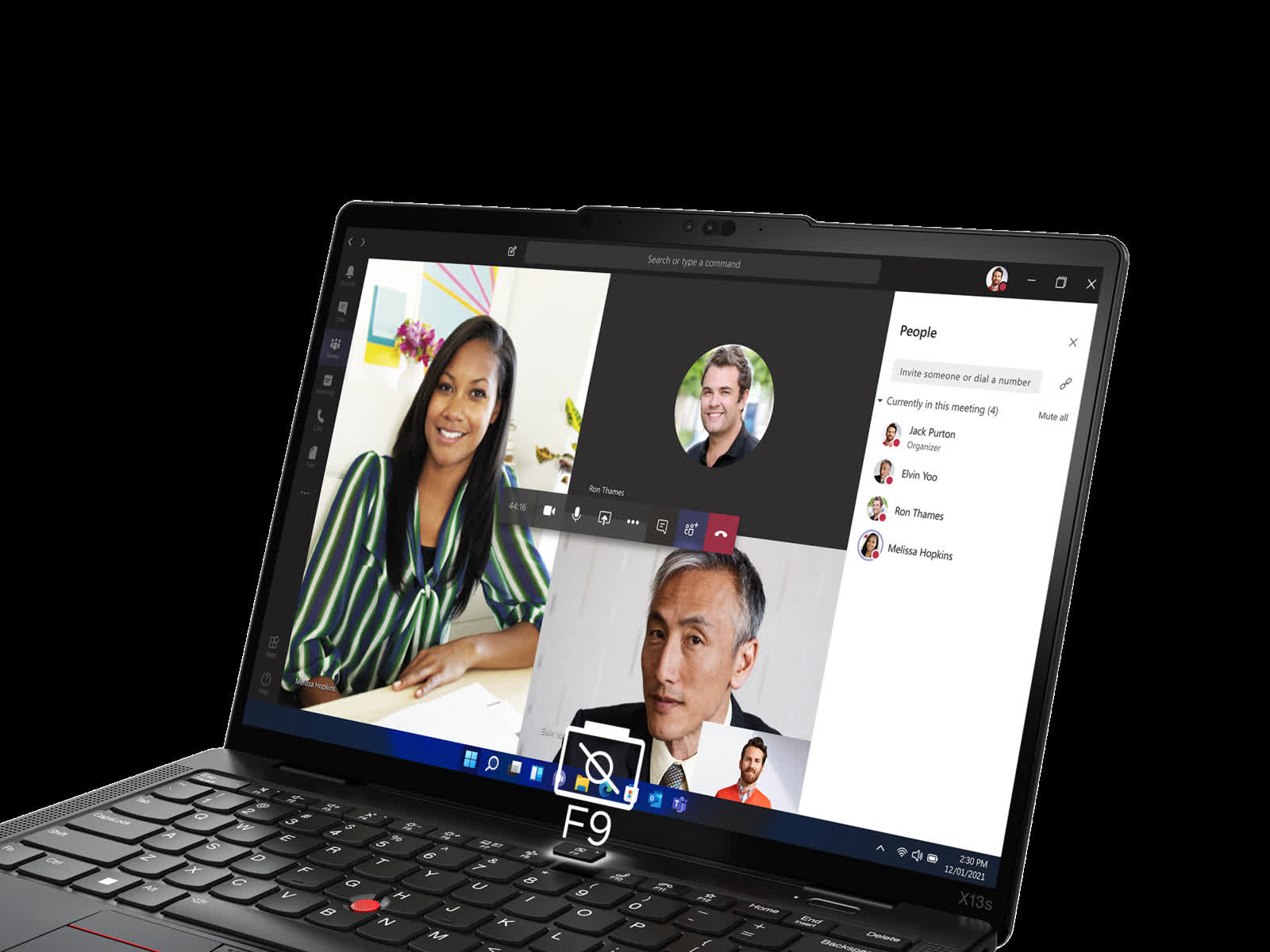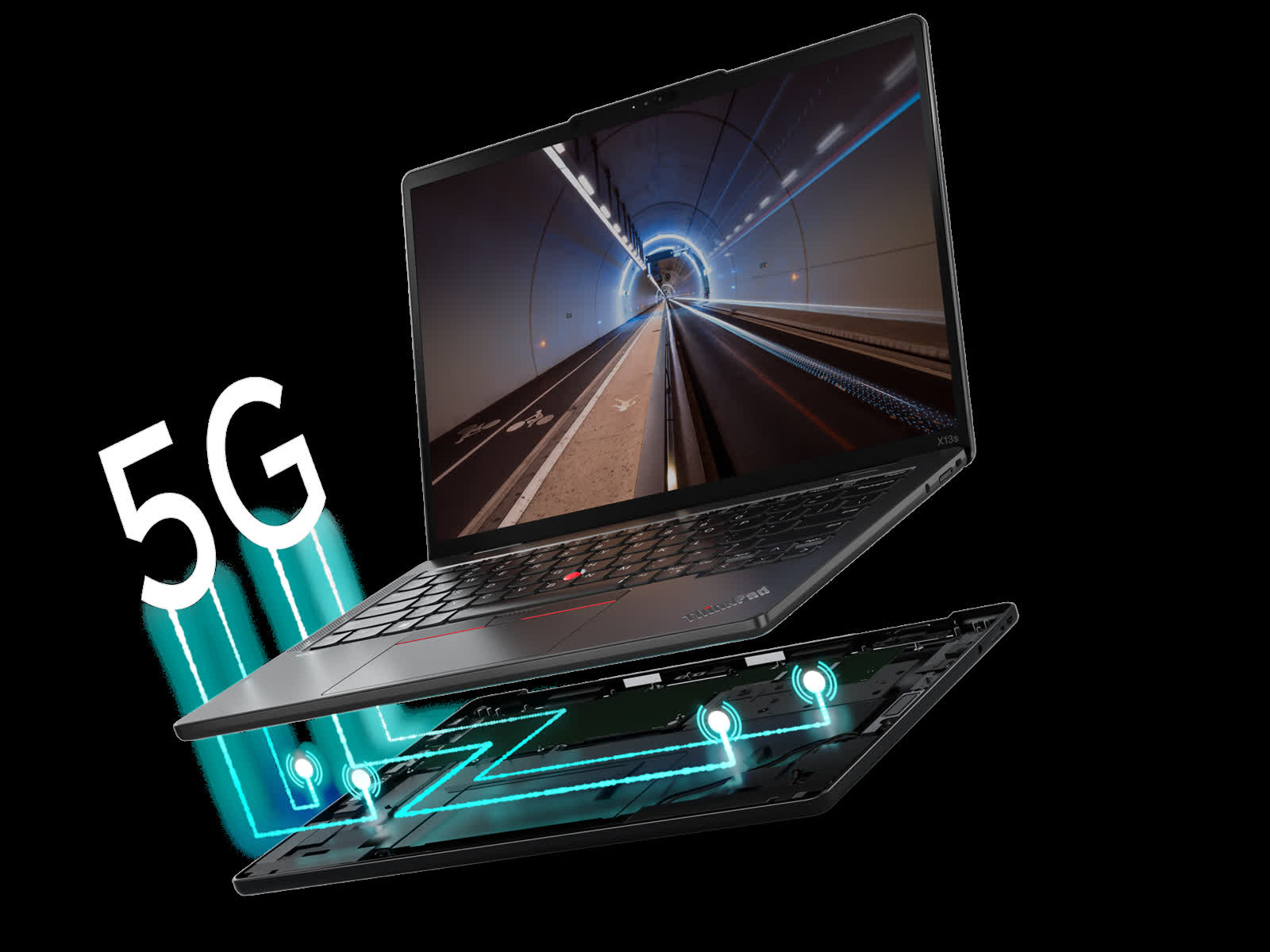Forward-looking: Lenovo has unveiled a slew of products at MWC, including some interesting ThinkPad laptops. One of these has a claimed 28-hour battery life thanks to its Qualcomm Snapdragon 8cx Gen 3 chip, marking the first time the SoC has appeared in a PC.

Qualcomm lifted the lid off its latest SoC for Windows laptops in December. The company says the new chipset, built on the 5nm process, offers up to 80% faster CPU performance and up to 60 percent faster GPU performance when compared to its predecessor. It also boasts a 40% boost in single-threaded workloads and an 85% increase in multi-threaded workloads compared to the 8cx Gen 2 SoC.
The ThinkPad X13s features a 9W TDP, a 13.3-inch WUXGA 16:10 display, and the familiar ThinkPad design, including a TrackPoint center button. There’s also up to 32GB of LPDDR4x RAM, up to 1TB of PCIe SSD storage, a 5MP webcam and IR Camera with Computer Vision, and dual front-facing Dolby speakers, all packed into a 2.35-pound chassis, much of which is made from recycled magnesium.
Qualcomm previously made a big deal about the Snapdragon 8cx Gen 3’s connectivity, and you can see why in the ThinkPad X13s: there’s the option to add 5G—both mmWave and Sub-6. The laptop also features Wi-Fi 6 and Wi-Fi 6E.
Port-wise, the laptop comes with two USB-C 3.2 Gen 2 (10 Gbps) inputs, a 3.5mm audio jack, and a SIM card slot. It ships with Windows 11 preloaded, and buyers should notice that it's completely silent thanks to the lack of a fan.
The ThinkPad X13s will arrive in May, starting at $1,099. It will also be available at AT&T and Verizon later this year.
https://www.techspot.com/news/93578-lenovo-unveils-snapdragon-8cx-gen-3-powered-thinkpad.html

